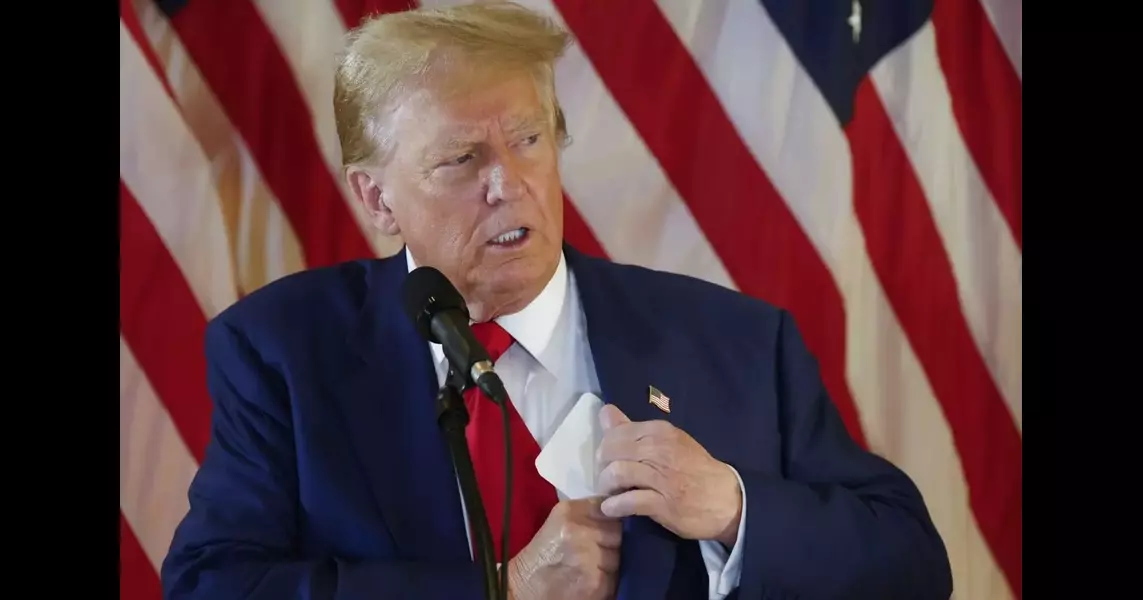Trump wants hush money conviction dismissed after Supreme Court’s immunity ruling

Trump's Bid for Immunity: A Pivotal Moment in the Pursuit of Justice
Former President Donald Trump's legal battle to have his New York hush money criminal conviction dismissed has taken a new turn, with his lawyers citing a recent Supreme Court ruling as grounds for shielding him from punishment for his involvement in election interference. The high court's decision, which granted the former president partial immunity, has sparked a heated debate over the limits of presidential power and the rule of law.Navigating the Complexities of Presidential Immunity
The Supreme Court's Partial Immunity Ruling
The Supreme Court's recent decision on presidential immunity has been a subject of intense scrutiny. While the justices rejected Trump's broader claims of complete immunity, they did acknowledge that some of his duties as president were off-limits to prosecution. This ruling has opened the door for Trump's lawyers to argue that the former president should be shielded from punishment in the New York case.The 6-3 ruling has been hailed as a "big win for our Constitution and democracy" by Trump himself, who expressed his pride in being an American. However, the decision has also drawn criticism from Democrats, who argue that it could have far-reaching consequences for the integrity of the democratic process and the principle of no one being above the law, not even the president.
President Joe Biden echoed these concerns, stating that the ruling has "fundamentally changed" the legal landscape for all practical purposes. The implications of this decision are likely to be felt for years to come, as the boundaries of presidential immunity are further tested and refined.
Trump's Legal Strategy: Challenging the Conviction
Emboldened by the Supreme Court's partial immunity ruling, Trump's lawyers have filed a request to have his New York hush money criminal conviction dismissed. They argue that the former president is immune from prosecution in this case and that the presiding judge, Juan Merchan, is now "duty-bound" to follow the Supreme Court's decision.However, Trump's request faces steep odds, as the legal landscape remains complex and uncertain. The delay in his sentencing, which was originally scheduled for Thursday but has been pushed back to September 18th, suggests that the courts are carefully navigating the nuances of this case.
The outcome of this legal battle will have significant implications for the rule of law and the accountability of those in the highest offices of government. As the case unfolds, the public will be closely watching to see whether the principles of justice and democratic integrity will prevail, or if the former president's claims of immunity will be upheld.
The Broader Implications: Preserving the Integrity of Democracy
The Trump case has become a litmus test for the resilience of the American democratic system. The Supreme Court's partial immunity ruling has raised concerns about the potential erosion of the checks and balances that are essential to a functioning democracy.Critics argue that granting any form of immunity to a president, even for actions related to their official duties, sets a dangerous precedent. It could embolden future leaders to engage in unethical or even illegal behavior, secure in the knowledge that they may be shielded from the consequences.
The stakes are high, as the outcome of this case could have far-reaching implications for the future of American democracy. The public will be watching closely to see whether the courts uphold the fundamental principle that no one, not even the president, is above the law.
As the legal battle continues, it is clear that the Trump case has become a pivotal moment in the ongoing struggle to preserve the integrity of the democratic process. The resolution of this case will have a lasting impact on the balance of power and the public's trust in the institutions that safeguard the rule of law.